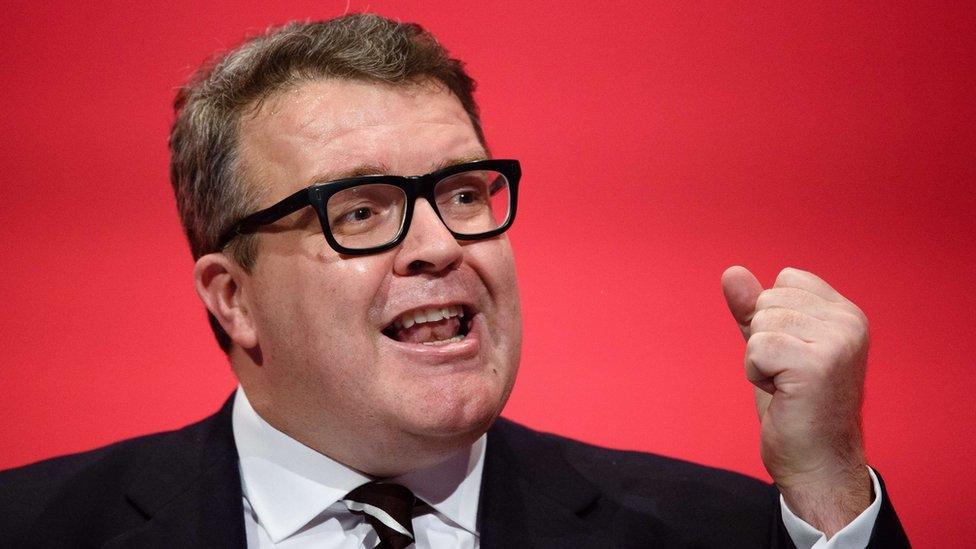Lord Brittan rape interview unlawful, says officer
- Published
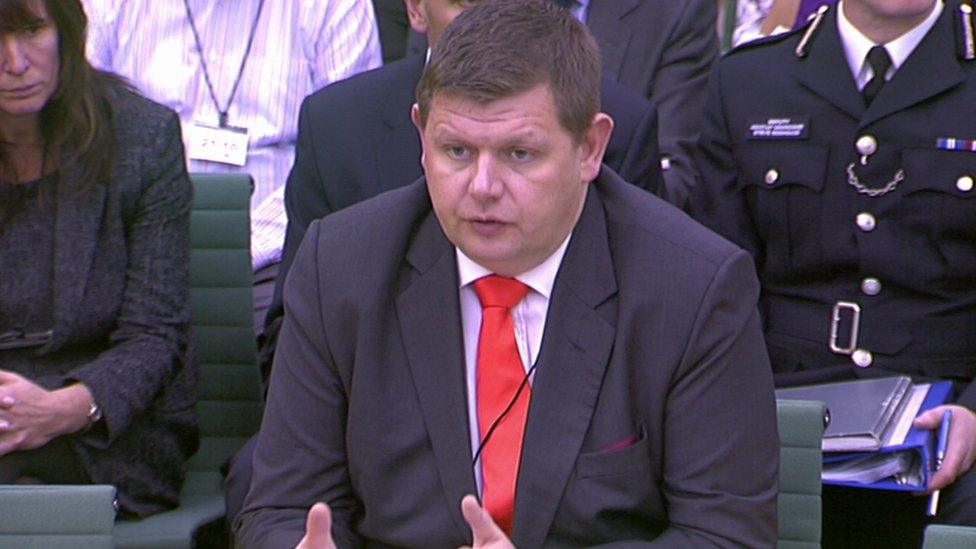
Paul Settle said he disagreed with the Metropolitan Police's decision to reopen the Brittan case
The Metropolitan Police acted unlawfully by interviewing former Home Secretary Lord Brittan about rape allegations, a senior officer has said.
Det Ch Insp Paul Settle told MPs the case against the politician "fell at the first hurdle" in terms of evidence.
He also criticised campaigning Labour MP Tom Watson's conduct in the case.
Mr Watson has rejected claims he sought to influence the investigation but apologised to Lord Brittan's widow for describing him as "close to evil".
The former Conservative peer died in January unaware that police had dropped a rape inquiry against him. The Metropolitan Police has apologised to his widow and said another force would review its handling of the case.
Giving evidence to the Home Affairs Select Committee, Mr Watson rejected suggestions he had tried to "micromanage" the investigation, saying he had been trying to merely "amplify the voice" of the complainant.
Tom Watson: "I am sincerely sorry for the hurt caused to Lady Brittan for repeating that phrase"
"I felt people's voices were not being heard, and I hope they can understand that," he said.
But he said he was "very sorry for the distress caused" to the Brittan family due to the publicity surrounding the case and apologised for using "emotive and unnecessary" language at times.
The Crown Prosecution Service found in July 2013 that there was not enough evidence for a prosecution over the claim that Lord Brittan had raped a 19-year-old female student in 1967 but the case was reopened less than a year later.
'No reasonable grounds'
Officers interviewed Lord Brittan, who was suffering from terminal cancer, in May 2014, but no charges were brought.
A month earlier, Mr Watson had written a letter to the director of public prosecutions Alison Saunders calling for a full review of all allegations made against the peer.
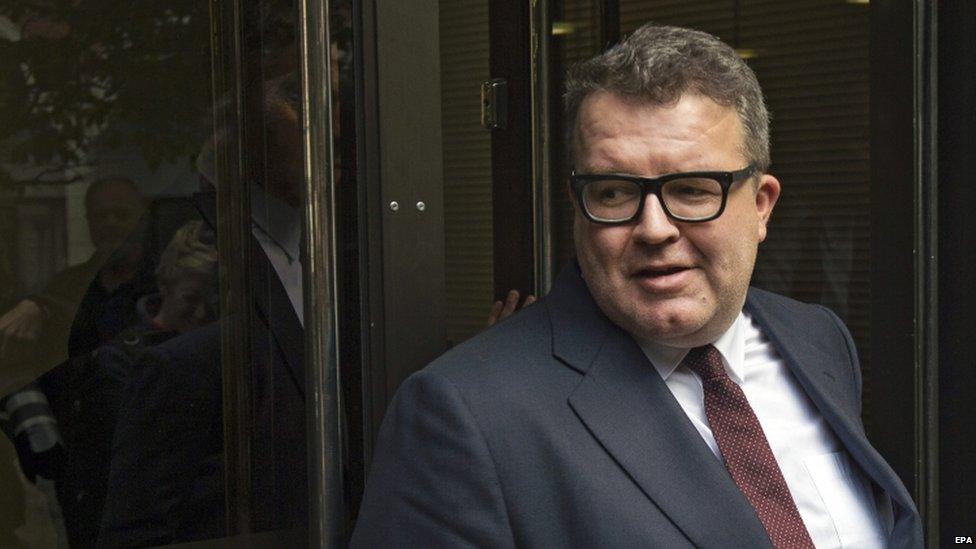
Tom Watson intervened in the case through a letter to the Crown Prosecution Service in April 2014
Although it was widely publicised in the media, the letter was passed to police only on 2 June, after the former home secretary was questioned.
Det Ch Insp Settle, who headed the original investigation, said he disagreed with the decision to reopen it, having concluded there were "no reasonable grounds" to suspect an offence had been committed and suggested the case was a "baseless witch hunt".
He said he briefed Mr Watson, a longstanding campaigner on exposing sexual abuse, about the case and the reasons for his decision in February 2014 as part of a continuing dialogue he had with the MP.
He said he was "disappointed" when he discovered that Mr Watson had subsequently contacted the Crown Prosecution Service to urge the case to be reviewed, describing it as a "low blow". The decision to reopen the case was a "direct result" of the MP's letter, he suggested.
'Grossly disproportionate'
He went on to question "the legal grounds" for interviewing Lord Brittan under caution, suggesting that it may have contravened the Police and Criminal Evidence Act.
"I concluded that any action against Lord Brittan would be grossly disproportionate and would not have a legal basis as in order to interview him we would have to have had reasonable grounds to suspect that an offence had been committed," he said.
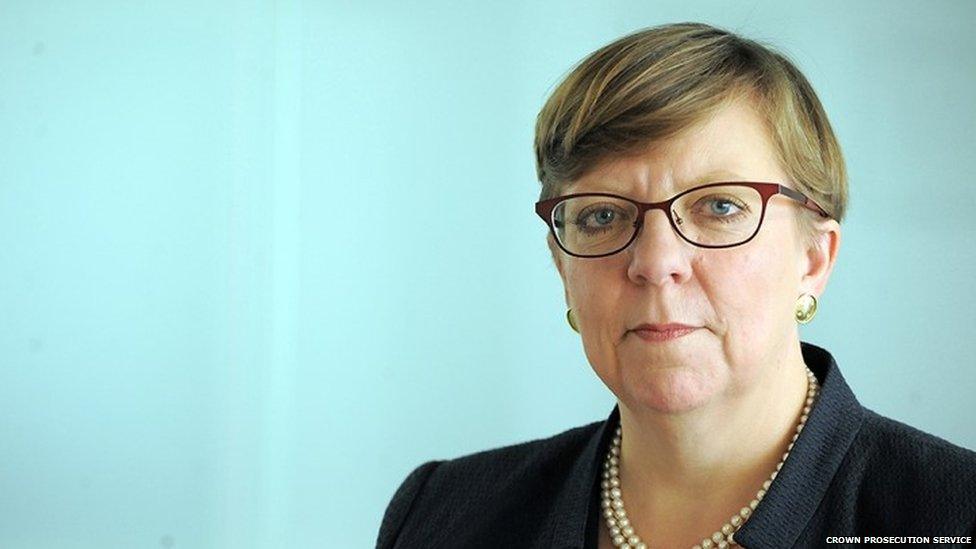
Director of public prosecutions Alison Saunders said it gave "clear advice" to the police at an early stage
Mr Watson said he was unable to comment on Det Ch Insp Settle's conclusion as he was not in possession of the full evidence and he defended his approach to the CPS, saying he had not meant to undermine the police and his "intention was to make sure the system was working properly".
The MP, who as a backbencher led parliamentary calls for a public inquiry into child abuse allegations against public figures, has been criticised by Conservative MPs - one of whom said he had appointed himself "witch-finder general".
But Mr Watson said he believed he had "done the right thing with the best of intentions".
'Not complex'
Giving evidence to the hearing, Ms Saunders said the case had not been "particularly complex" and "at no time did it meet the test" for charges to be brought - in terms of there being sufficient evidence for a realistic prospect of a conviction.
Ms Saunders said the CPS had given "clear advice" to the police at an early stage and dismissed suggestions that Mr Watson's intervention had had any impact on her position, pointing out that she had never met him before.
Defending the Met's action, Deputy Assistant Commander Steve Rodhouse said the case had been more "close cut" than had been reported and that it would have been "highly unusual" for it to have been dismissed without the parties involved being interviewed.
"It is important we do a thorough investigation on every occasion," he said. "But clearly, where the subject of the investigation is subject to public scrutiny, it is particularly important that we have got it right."
Earlier this month, the Met published the key findings of a report, external into the handling of the Brittan case.
It revealed investigating officers told the complainant in April that there would not have been a prosecution for rape had Lord Brittan still been alive - a move which a Met spokesman says was "premature", as the CPS did not confirm it would not pursue the case until June.
However, Lord Brittan's legal team were not told at the same time as the complainant was. Scotland Yard said it had delayed telling the peer when he was alive because the CPS had been asked to carry out a final review of the case.
- Published16 October 2015
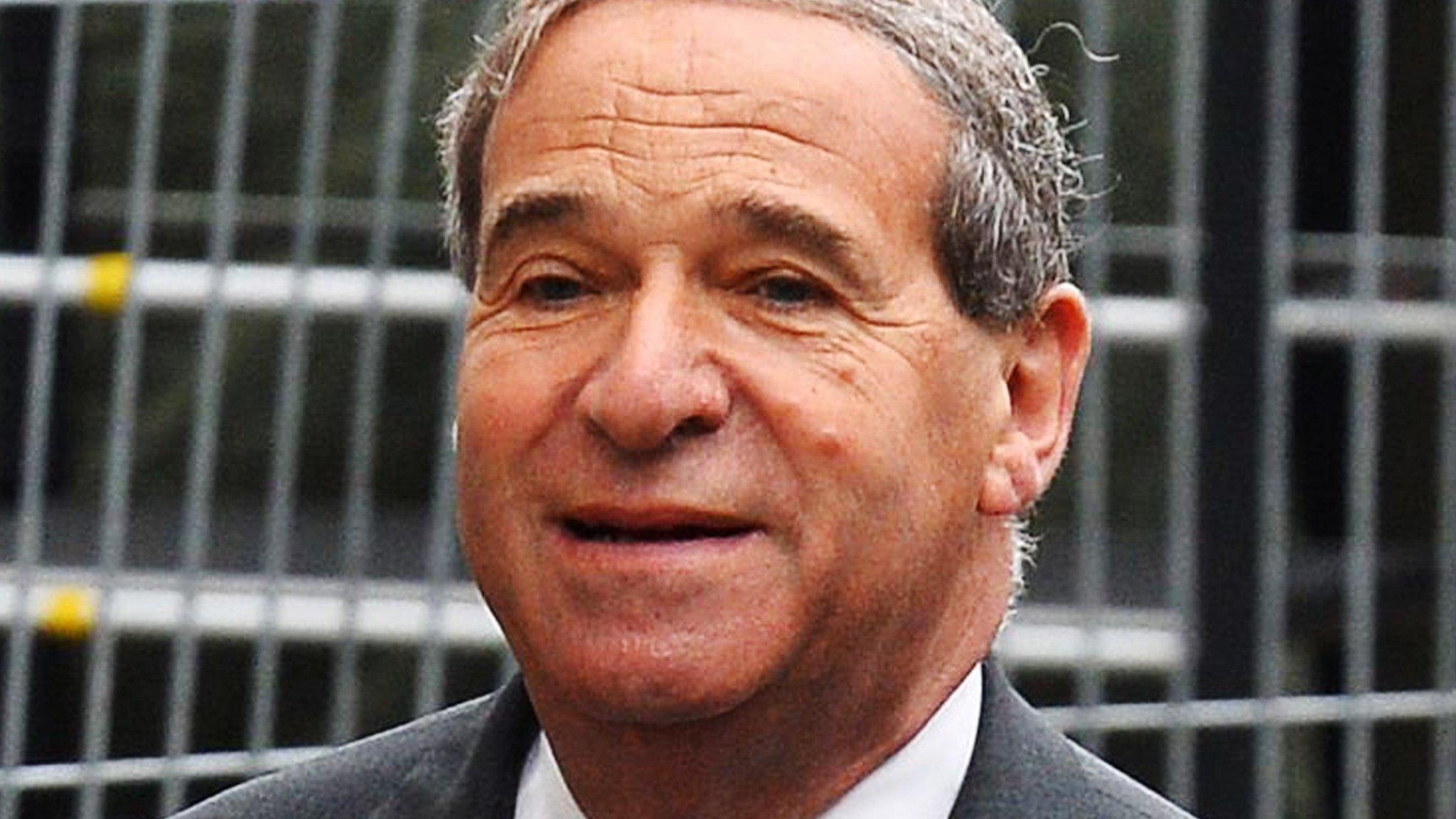
- Published12 October 2015
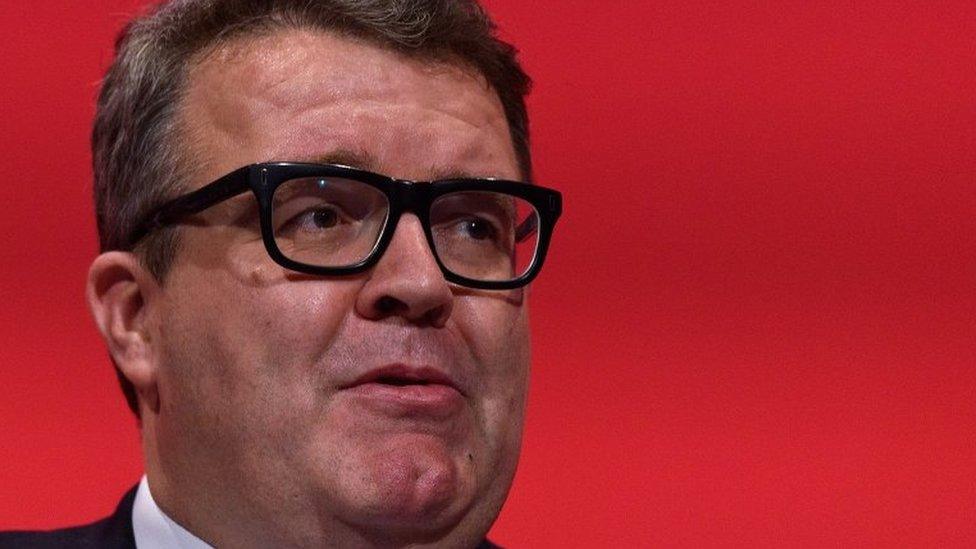
- Published9 October 2015
